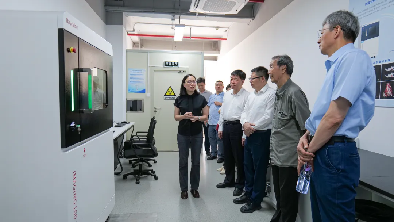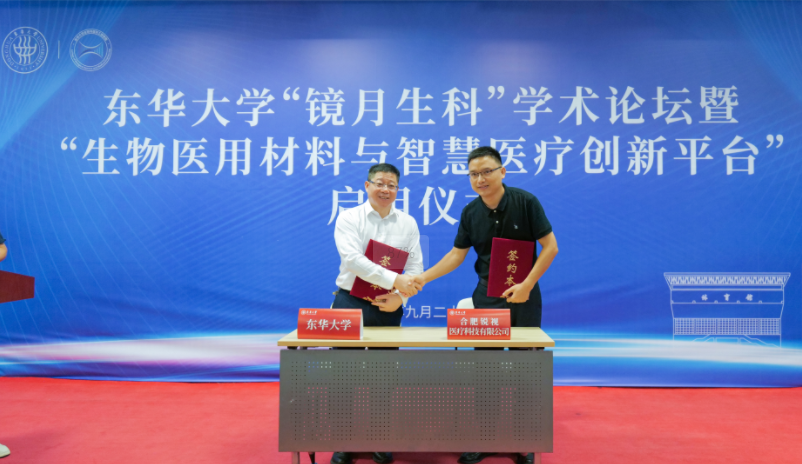Oct 23, 2024

On September 29, 2024, Raycision Medical Technology Co., Ltd. and the School of Biological Science and Medical Engineering at Donghua University signed a strategic cooperation agreement and officially inaugurated the “Joint Micro-CT Laboratory”.
As a global leader in the fields of preclinical imaging and precision irradiation (radiation therapy for small animals), Raycision provides efficient and innovative scientific equipment for experimental animals, materials, disease, and biological research. Particularly in the imaging field, Raycision has leveraged its core technological advantages accumulated over the years to launch products including Micro-CT imaging system, optical molecular imaging systems, and multimodality imaging systems. These products have gained widespread recognition for their excellent performance and broad applications.
IMAGING 100, independently developed by Raycision, is a flexible, versatile and cost-effective Micro-CT imaging system. It offers high-speed and high-resolution scanning, GPU-accelerated reconstruction, and user-friendly image analysis software. The sophisticated design empowers the IMAGING 100 with multiple fields of view and resolutions, meeting in vivo and ex vivo imaging requirements simultaneously.
This partnership aims to deeply integrate scientific research and technological advantages, focusing on imaging data analysis, biomedical engineering, and materials science. By leveraging the synergistic effect of the joint laboratory, the collaboration seeks to provide researchers with more resources and support, effectively promoting the transformation and application of scientific research achievements, accelerating technological innovation and equipment development, and expanding the application of new materials in life sciences and medical fields.

The signing of the strategic cooperation agreement between Raycision and the School of Biological Science and Medical Engineering at Donghua University, along with the establishment of the Joint Micro-CT Laboratory, marks a new phase in their collaboration on biomedical materials research. With the joint efforts of both parties, the laboratory is expected to become a significant hub for technological innovation and a benchmark platform for collaboration between academia and industry.
This is the last one.